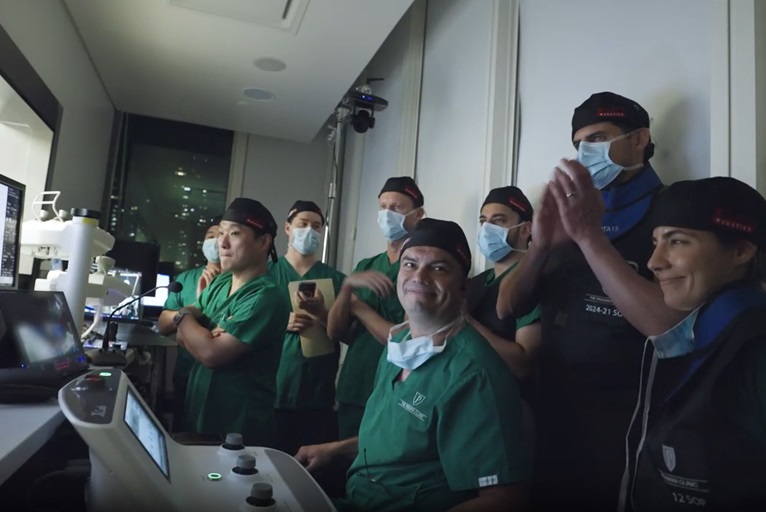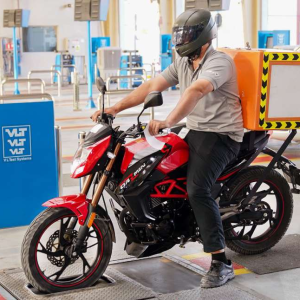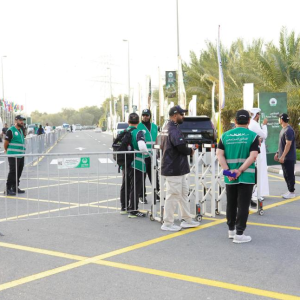In a groundbreaking development for global healthcare, XCath, supported by UAE-based Crescent Enterprises, has successfully completed the world’s first robotic brain aneurysm surgeries. This achievement marks a major milestone in neurovascular robotics, offering safer, more precise, and widely accessible treatments for life-threatening brain conditions.
The surgeries were conducted at The Panama Clinic by Dr. Vitor Mendes Pereira and Dr. Anastasio Ameijeiras Sibauste. This represents the first human application of XCath’s endovascular robotic (EVR) system, designed to treat complex intracranial conditions with unmatched precision. The UAE is now positioned as a global leader in medical technology innovation through this pioneering work.
A Global First in Neurovascular Robotics
XCath’s EVR system is the world’s first triaxial neurovascular robot capable of real intracranial navigation. Unlike conventional robotic systems, it allows surgeons to perform highly complex brain interventions with sub-millimeter accuracy. This precision is critical when treating brain aneurysms, where even minor mistakes can have life-altering consequences.

Brain aneurysms affect roughly one in fifty people globally and are often detected too late, leading to severe disability or death. The robotic system allows specialists to perform procedures remotely or in areas where expert neurosurgeons are unavailable.
Dr. Pereira, lead surgeon on the trial, highlighted that robotic assistance significantly improves precision and consistency. The technology also has the potential to support junior doctors in learning complex procedures safely while reducing risks for patients.

Crescent Enterprises’ Role in the Breakthrough
Crescent Enterprises, headquartered in Sharjah, played a pivotal role in XCath’s success as the founding and largest shareholder. The firm has actively supported the development of the EVR system, demonstrating the UAE’s broader vision of becoming a global hub for healthcare innovation.
This milestone builds on previous achievements, including a public remote thrombectomy demonstration during Abu Dhabi Global Healthcare Week in 2024, where a blood clot was removed in real time from South Korea. These events show the potential for XCath’s technology to transform neurovascular surgery worldwide by overcoming geographical barriers.
By investing in advanced medical robotics, Crescent Enterprises contributes to a future where specialized treatments can reach patients anywhere, reducing the time between diagnosis and critical interventions.
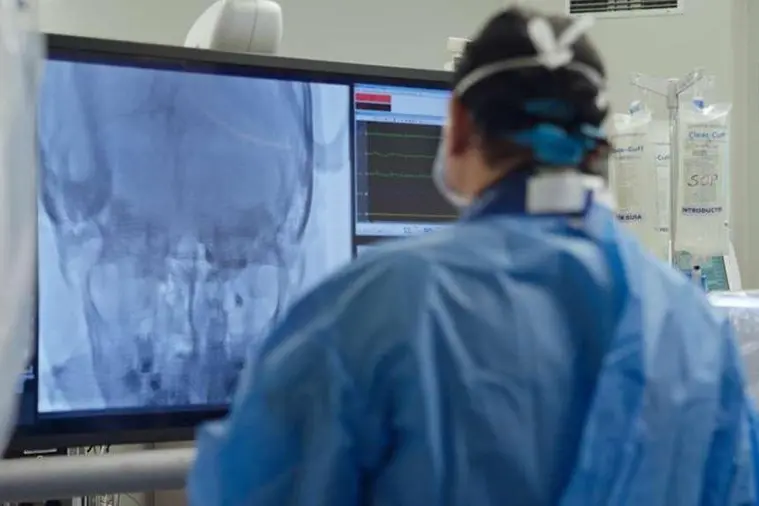
Transforming Brain Aneurysm Treatment
Traditional aneurysm surgery requires extreme precision and expertise. Ruptured aneurysms can be fatal or result in permanent disability. XCath’s robotic system enhances safety by enabling surgeons to navigate delicate blood vessels with exceptional accuracy.
The EVR system’s ability to bring the specialist to the patient has the potential to democratize access to life-saving procedures, particularly in regions lacking neuro-specialists. Robotic surgery also allows for standardized procedures, improving consistency and outcomes.
Additionally, remote operation capabilities could open new possibilities for tele-surgery, enabling patients in remote or underserved locations to receive timely interventions from top specialists.
Human Impact and Patient Benefits
The success of XCath’s robotic brain aneurysm surgeries represents more than just technological advancement. For patients, it offers safer, faster, and more precise treatment options. The system minimizes risks traditionally associated with neurovascular interventions, including hemorrhage and prolonged recovery periods.
Dr. Anastasio Ameijeiras Sibauste emphasized that the technology reduces the physical strain on surgeons, allowing them to focus on strategy and precision rather than manual dexterity. This contributes to better outcomes, particularly in lengthy or complex procedures where fatigue can affect performance.
For patients and families, this breakthrough brings hope. It demonstrates how advanced robotics can directly improve quality of life, save lives, and reduce the emotional and financial burdens of traditional treatment methods.
The Future of Robotic Neurointervention
XCath is preparing to expand the EVR system for commercial and remote neurointervention applications. This success reinforces the UAE’s commitment to healthcare innovation and signals a future where life-saving surgery is scalable and globally accessible.
Robotic systems like XCath’s EVR may inspire new platforms for other medical specialties, such as cardiac, spinal, or vascular surgery. The principles of precision, remote access, and human-centered design demonstrated in this milestone have wide applications across medicine.
Healthcare institutions and policymakers are paying close attention. The UAE’s leadership in this area provides a blueprint for other countries seeking to accelerate medical innovation while improving access to critical care.
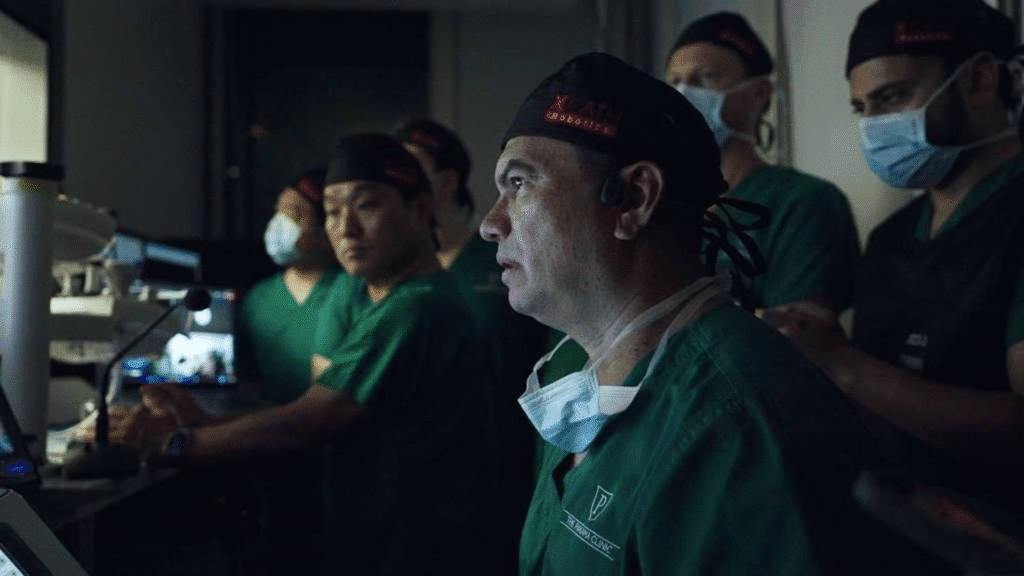
Shaping a New Era in Surgery
XCath’s EVR system represents a paradigm shift in how complex surgeries are performed. Traditional surgery relies heavily on local expertise and manual precision, which can limit access for patients in remote areas. Robotic systems integrate technology, artificial intelligence, and remote operation capabilities to overcome these limitations.
Surgeons can now focus on strategic decision-making and precision navigation while robotics handle the demanding physical aspects of the procedure. This reduces variability, improves outcomes, and enables world-class care in locations that previously lacked specialized neurosurgeons.
The milestone achieved by XCath sets the stage for future innovations in medical robotics, showing that combining technology and clinical expertise can redefine the boundaries of patient care.
Global Implications for Healthcare
The impact of this achievement extends beyond the UAE. Millions of people worldwide are affected by brain aneurysms and other intracranial conditions. Scalable robotic solutions can drastically reduce mortality and long-term disability.
XCath’s EVR system has the potential to influence the development of other robotic surgical platforms. The success demonstrates that technology, when paired with expert medical guidance, can expand access to high-quality care while reducing the risks of complex procedures.
This milestone highlights the transformative potential of robotics in healthcare. It ensures that patients worldwide can benefit from life-saving treatments previously limited to specialized centers.
Conclusion
XCath’s successful execution of the world’s first robotic brain aneurysm surgeries represents a major leap forward in medical innovation. Backed by Crescent Enterprises, the project demonstrates how technology can enhance patient care, improve surgical safety, and expand access to life-saving interventions.
The UAE has positioned itself as a global leader in neurovascular robotics, setting new standards for precision, accessibility, and surgical excellence. For patients, doctors, and healthcare systems worldwide, this milestone is a symbol of hope and progress.
As XCath continues to expand its robotic solutions, the world can look forward to a future where advanced neurointerventions are accessible to everyone, anywhere, drastically reducing the global burden of brain aneurysms and transforming surgical medicine.
Do follow UAE Stories on Instagram
Read Next – Pearl Lounge Abu Dhabi: The Ultimate Airport Experience

